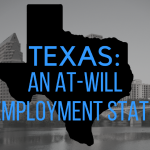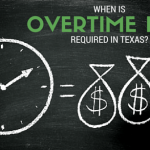After being fired or forced to quit a job, you may be wondering how you are going to make ends meet. Texas law allows for employees who are temporarily out of work through no fault of their own to collect unemployment benefits. The current maximum benefit is $494 per week. While not everyone who is fired will qualify for unemployment benefits, it is important that you take the necessary steps to apply as soon as you become unemployed. The application process is handled by the Texas Workforce Commission and can be taken care of through its Unemployment Benefit Services online system.
How do I know if I will be approved for unemployment benefits?
The main question that is considered by the Texas Workforce Commission in deciding whether an employee is eligible for unemployment benefits is whether the individual became unemployed through no fault of their own. In other words, you will not be approved for unemployment benefits if you were fired for committing misconduct at work. Under the law, “misconduct” means “mismanagement of a position of employment by action or inaction, neglect that jeopardizes the life or property of another, intentional wrongdoing or malfeasance, intentional violation of a law, or violation of a policy or rule adopted to ensure the orderly work and the safety of employees.” This can include blatant examples of misconduct such as fighting on the job or stealing from your employer but can also include things like an employee’s continued failure to perform despite being given multiple opportunities.
However, misconduct does not include acts that are “in response to an unconscionable act of an employer or superior.” An example of an unconscionable act would be if your employer asked you to engage in some criminal or illegal activity and you were subsequently fired for refusing to engage in that illegal behavior. You also may be eligible for unemployment benefits if you quit in response to your employer’s request that you engage in illegal activity.
Can I still receive unemployment benefits if I quit my job?
Maybe. If you resigned or quit your job, there are certain situations that may allow you to still qualify for unemployment benefits. The Texas Workforce Commission will determine if the employee had “good cause” for leaving his/her job. Like the above example, you may be eligible for unemployment benefits if you resign in response to an unconscionable act of the employer. If your employer tells you that you will be fired if you do not quit your job, then the Texas Workforce Commission views that separation the same as a firing for purposes of determining eligibility for unemployment benefits (i.e. did the employee commit misconduct).
What do I do if I am denied unemployment benefits?
If the initial determination/decision of the Texas Workforce Commission is to deny your claim for unemployment benefits, you have the right to appeal that decision and you have the right to be represented by an attorney. Once an appeal is filed, your claim will be set for a telephone appeal hearing. Prior to filing the appeal, you should reach out to an employment attorney to discuss your claim and possible representation. During the appeal hearing, a hearing officer from the Texas Workforce Commission will hear testimony and evidence from the employer and employee, including witnesses for both sides, before making a decision. Having an employment attorney on your side can help focus the arguments and increase the chances that you are ultimately awarded unemployment benefits.







